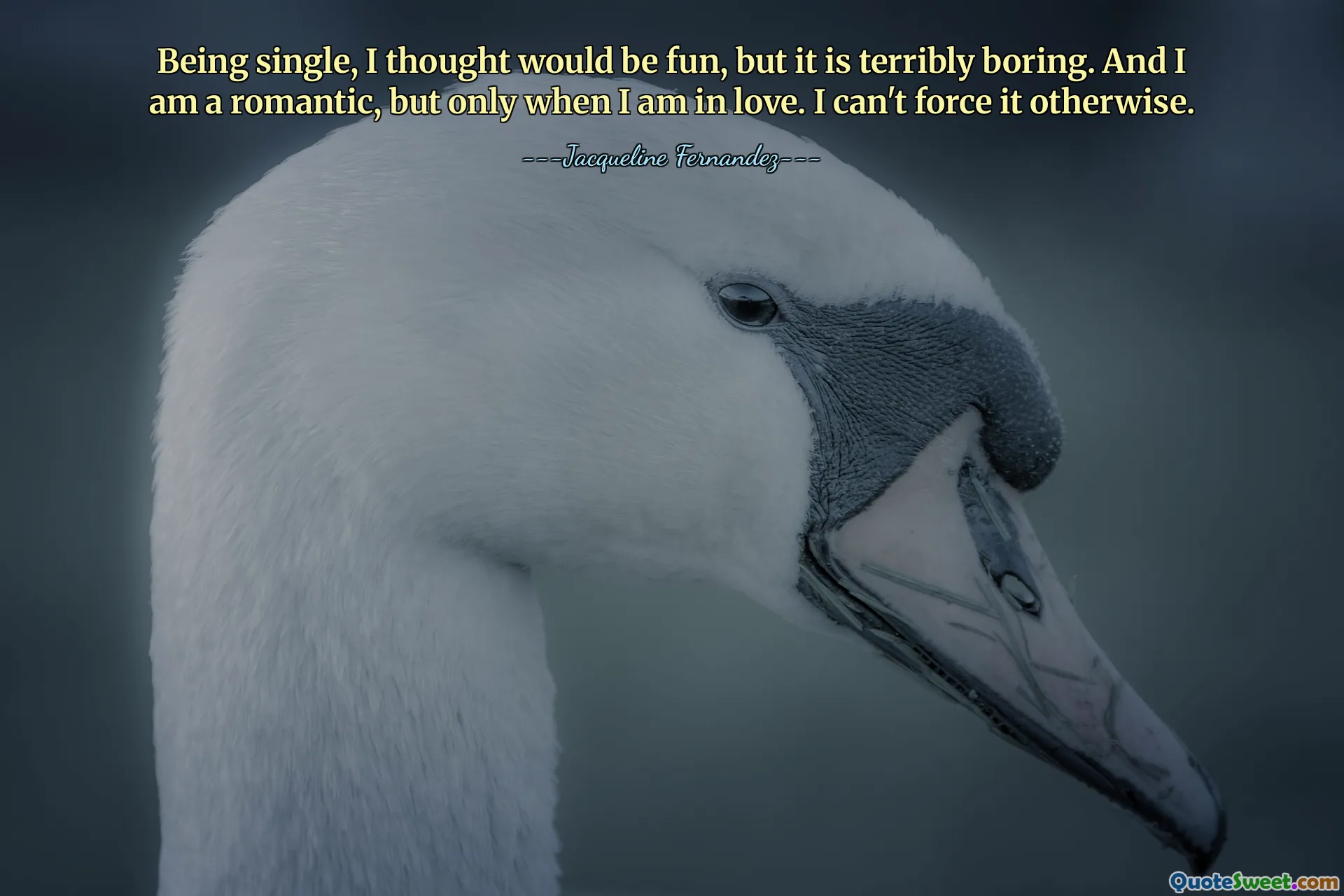
Being single, I thought would be fun, but it is terribly boring. And I am a romantic, but only when I am in love. I can't force it otherwise.
This quote offers a candid insight into the nuanced experience of solitude and romantic longing. Often, society promotes the idea that being single is merely a phase that one must endure or a state to be avoided, but in reality, it can be a complex and introspective period. The speaker initially believed that solitude might bring freedom and enjoyment, yet they find it to be quite the opposite—highlighting how perceptions can differ vastly from reality. It underscores the human desire for connection and the emotional fulfillment that romantic relationships can provide. The expression of being a romantic "only when in love" reveals a vulnerability—acknowledging that genuine feelings of love are spontaneous rather than forced. This honesty invites reflection on the nature of love itself—that authentic connection cannot be manufactured or hurried, but emerges naturally from the depth of mutual understanding and emotional resonance. The statement also subtly touches on the societal pressures to be constantly in a relationship, making one question whether happiness is truly tied to being paired off or if it resides more in authentic emotional experiences. Ultimately, the quote encourages embracing one’s truth—accepting the moments of loneliness while recognizing that genuine love cannot be engineered. It suggests that patience and self-understanding are essential on the journey toward meaningful relationships, rather than forcing emotions or conforming to external expectations.











